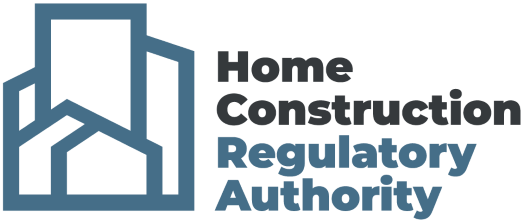
The Home Construction Regulatory Authority (HCRA)
Licensing and regulating new home builders and sellers in Ontario
Learn the requirements to become
a licensed builder or seller.
Search the Ontario Builder Directory to find a licensed professional.
File a complaint about the conduct of a licensed builder or seller.
Recent Actions & Decisions
Date issued: August 12, 2025
Administrative Penalty
R.O. Beam & Son Construction Ltd.
Date issued: August 8, 2025
Notice of Proposal to Refuse to Renew
Date issued: July 21, 2025
Licence Appeal Tribunal – Decision & Order
Date issued: July 21, 2025
Licence Appeal Tribunal – Decision & Order
Date issued: July 18, 2025
Administrative Penalty
Recent Blogs
Your Guide to the Ontario Builder Directory
Hosted by the HCRA, the Ontario Builder Directory offers background information on more than 7,000 builders and sellers across Ontario. Find out how to navigate the Builder Directory so you can confidently choose a licensed builder.
Building Confidence: How Licensing Supports Building Safety
When buying a new home, it’s important to feel confident that it’s being built safely and meets proper building standards. In Ontario, that peace of mind comes from the Ontario Building Code – and from the licensed professionals who follow it.
Top homebuyer questions answered: highlights from the National Home Show
The Home Construction Regulatory Authority participated in the National Home Show to guide consumers in their home-buying journey. We’re coming back with answers to the most frequent questions we received during the event.
